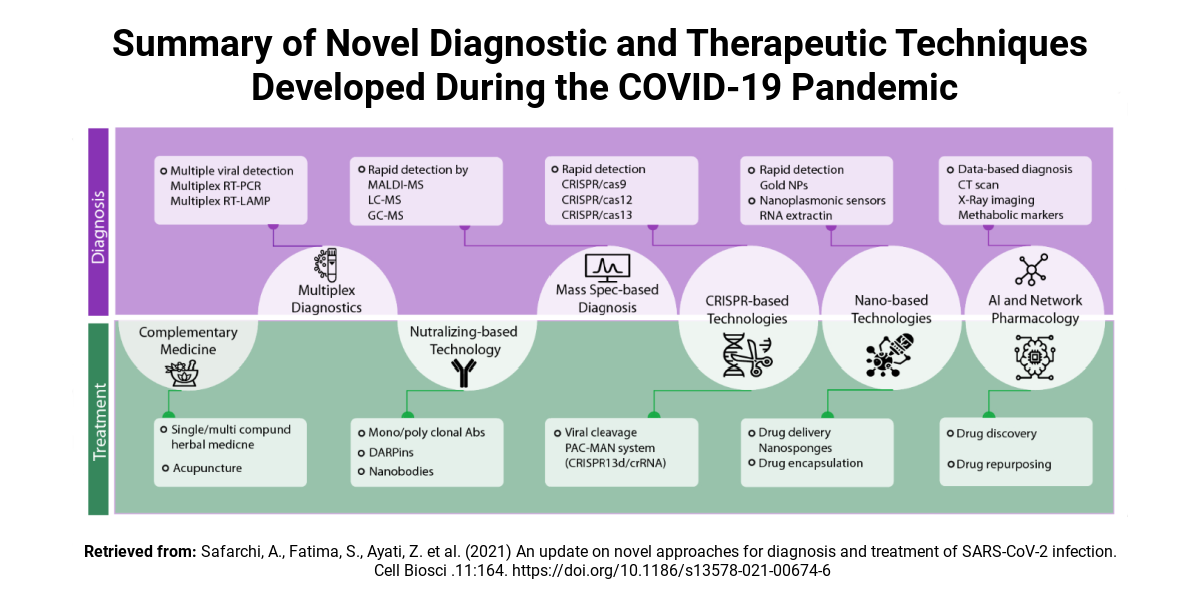Although COVID-19 was the first global pandemic of the 21st century, it follows a history of respiratory disease outbreaks, including previous pandemics such as the Spanish Flu of 1918, the Asian Flu (1957-1958), and the Hong Kong Flu (1968-1969). Unfortunately, it will not be the last pandemic, and news reports seem to continually alert us to the possibility of the next one, most recently revealing a new mutated bird flu from China that has scientists on high alert1.
For the diagnostic industry, COVID-19 brought about unprecedented changes, highlighting both the challenges and strengths of the industry and teaching us valuable insights for the next pandemic2. Furthermore, it led to advances in scientific technologies that allowed us to detect and characterize SARS-CoV-2 with unprecedented speed3.
Significant Changes and Advancements in Diagnostic Technologies
Multiplexing:
Several respiratory viruses including the flu and RSV share similar symptoms to COVID, and differentiating between these viruses became critical to the public health response and managing patient care. Demand for multiplexed PCR-based assays grew along with the adoption of automation and high-throughput platforms which were used to increase the capacity for multiplex testing4.
Point-of-care (POC):
An accelerated shift was observed towards sharing control of disease diagnosis and management with patients, marking a transition from traditional provider-driven healthcare to a more patient-centered and collaborative model. Consequently, easy-to-use at-home, mobile and bedside devices gained significant popularity and the demand continues for at-home tests for a range of diseases including STDs5.
Genomic Sequencing:
The early detection of SARS-CoV-2 variants, along with a better knowledge of the mutational processes behind shifting patterns of virulence, transmissibility, and antigenicity, provided unprecedented support to make timely public health decisions during the pandemic. Advances in next-generation sequencing enabled rapid and efficient production of entire viral genomes at a low cost. Specifically, improvements to sequencing chemistry made sequencing reactions more accurate and reliable, reducing errors and the need for repeat sequencing6.

COVID-19-driven changes in the diagnostic industry will have a lasting impact on how healthcare systems approach diagnostics for various diseases and conditions in the years to come. They have highlighted the importance of innovation, scalability, and adaptability in the field of diagnostics.
To learn about Meridian’s innovative molecular reagents solutions for multiplexing qPCR/RT-PCR solutions, point-of-care/ isothermal amplification and novel genotyping mixes, download a copy of our whitepaper, “Unmasking the Complexities: Overcoming Challenges in Multiplexing for COVID-19, Flu, and RSV Differential Diagnosis”.
References
- Pocock, A.C. “Alarming Discovery: Mutating Bird Flu in China Raises Pandemic Fears”. SciTechDaily. September 6, 2023. https://scitechdaily.com/alarming-discovery-mutating-bird-flu-in-china-raises-pandemic-fears/#google_vignette Accessed Sept 7, 2023
- Das, S., Dunbar, S. (2022). The COVID-19 Pandemic – A Diagnostic Industry Perspective. Front Cell Infect Microbiol. 12:862440. https://doi: 10.3389/fcimb.2022.862440.
- Botti-Lodovico, Y. “Harnessing technology for pandemic preparedness demands system reform”. The Brookings Institution February 18, 2022. https://www.brookings.edu/articles/harnessing-technology-for-pandemic-preparedness-demands-system-reform/ .Accessed Sept 7, 2023.
- “Multiplex testing helps provide critical insights as respiratory viruses surge” Nature Portfolio. https://www.nature.com/articles/d42473-021-00318-w. Accessed Sept 7, 2023.
- Spencer, S. E. W. “Interest in point-of-care technologies increases among health care professionals during pandemic” UMass Chan News. September 27, 2022. https://www.umassmed.edu/news/news-archives/2022/09/interest-in-point-of-care-technologies-increases-among-health-care-professionals-during-pandemic/ Accessed Sept 7, 2023.
- Saravanan, K.A., et al. (2022) Role of genomics in combating COVID-19 pandemic. Gene. 823:146387. https://doi: 10.1016/j.gene.2022.146387.
- Safarchi, A., Fatima, S., Ayati, Z. et al. (2021) An update on novel approaches for diagnosis and treatment of SARS-CoV-2 infection. Cell Biosci .11:164. https://doi.org/10.1186/s13578-021-00674-6